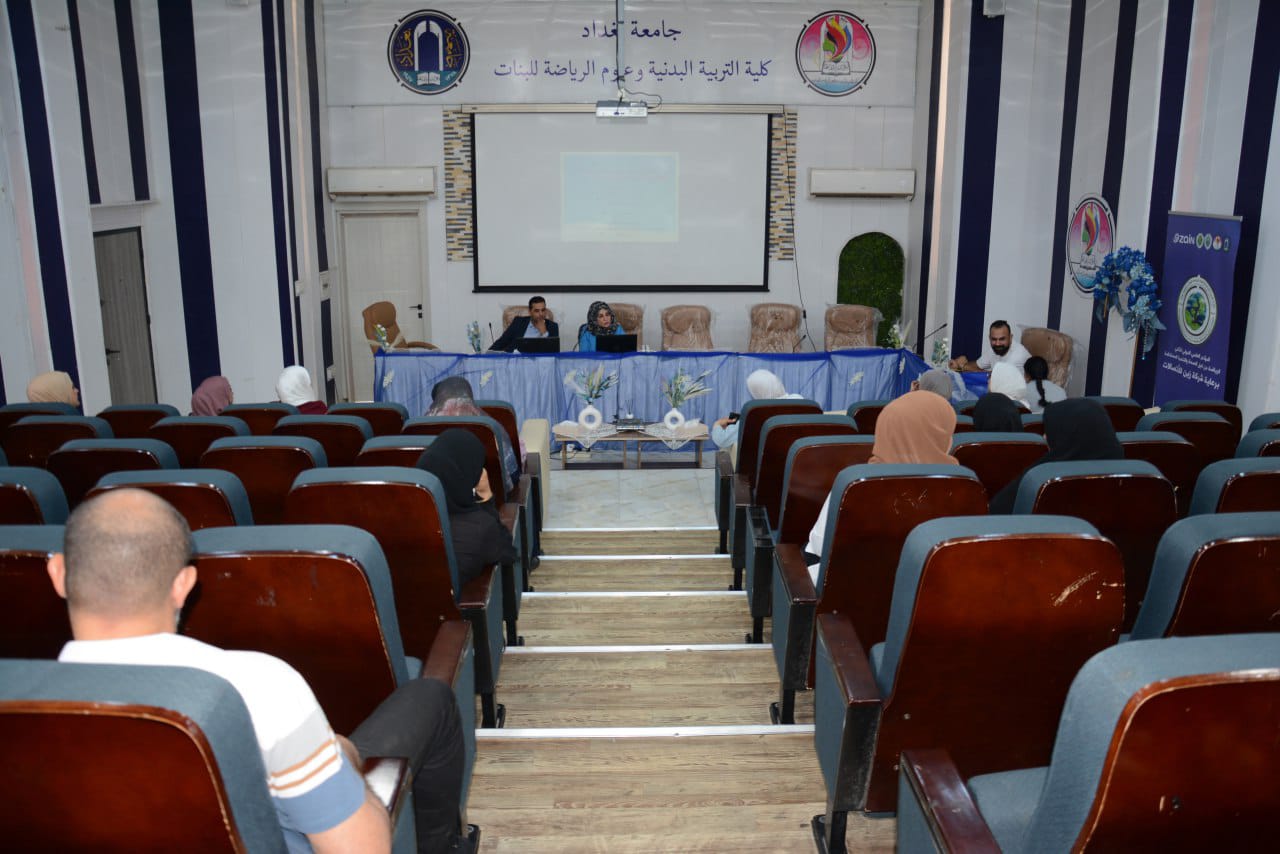Under the patronage of the Dean, Prof. Dr. Fatima Abd Malih, and the supervision of Lect. Dr. Sura Ahmed Saleh, the Quality Assurance and Performance Evaluation Division at the College of Physical Education and Sports Sciences for Women, University of Baghdad, hosted a group of academics from Al-Mustansiriya University: Prof. Dr. Muntaha Abdul Zahra, Asst. Lect. Safaa Abdul Hussein, and Asst. Lect. Abbas Rahma Zair. They held a scientific seminar titled (The Role of University Institutions in Guiding and Educating Students About Low-Quality Content and Avoiding Its Harms).
The seminar addressed the issue of low-quality content, which the speakers defined as any media or digital material that lacks quality and relies on sensationalism and misleading headlines to attract views and engagement without offering intellectual or informative value. They clarified that this type of content includes fake or deceptive news, cyberbullying, defamation, digital extremism, vulgar entertainment content lacking refined taste, controversial or provocative videos, and posts inciting hatred or using language that falls below ethical standards.
The lecturers also discussed the reasons behind the spread of low-quality content, highlighting several factors, including the pursuit of profit through views, where many content creators depend on digital advertising and are thus driven to produce controversial material to attract a larger audience. They also pointed out the ease of publishing and engaging on social media platforms, allowing anyone to distribute content quickly. Additionally, they mentioned the audience’s weak media literacy, which leads to the belief in and promotion of low-quality content without fact-checking. The preference for quick, light entertainment over deeper, more beneficial material also increased demand for such superficial content.
The speakers warned of the adverse effects of low-quality content on society, especially the distortion of cultural and moral values among youth and adolescents. Low-quality content also contributes to the spread of false and unreliable information, which misleads public opinion and creates informational chaos. Moreover, it lowers the level of public taste, negatively impacting the quality of cultural and social production.
After the seminar, the Dean, Dr. Fatima Abd Malih, presented certificates of appreciation to the speakers to recognize their efforts in organizing this awareness-raising event. This event is significant given the widespread use of modern social media and its central role in shaping public awareness and serving the common good.
This seminar aligns with the goals of sustainable development, particularly Goal 4 concerning quality education and Goal 17 related to building partnerships to achieve the goals.
